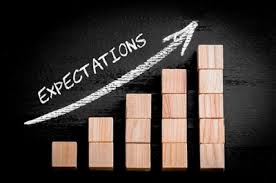Small business owners often struggle with their local SEO. You have your business, your customers and now your site requires attention as well.I often talk to entrepreneurs who only use their website as a reference, it is a bit narrow.There is so much more you can do!
In this article, I go through some improvements that small business owners can easily do themselves. It will cost you some well-invested time. Use this article as a checklist to see your business status. Here we go!
Manage your expectations

Let’s start with the most important thing: Be realistic about what you can and can’t rank for. Manage your expectations. If your competitors are giant companies with large market budgets, you will not rank number one for your main keyword (eg car insurance). Optimise for specific keywords instead.
What is your niche?
Take some time to find the keywords that best describe your business. If you are a local food store that also has home delivery, you can optimize for “ordering food products Melbourne” not “order foodstuffs online”. See how you can distinguish yourself from the pack and focus on your differences. This also includes focusing on long tail keywords. It takes me to my next tip.
Use long-tail keywords
You do not need to be over careful when niche your business online. “Sports equipment for teams that are easy to wash in Sydney” will only give you a new visitor a day. Focus on long-tail keywords as “sports equipment Sydney”. For a small company, it usually pays to add the city’s name to some optimised pages.
For example we are SEO experts and people may search us with “SEO Company in Sydney“
Use offline platforms
New Website? Contact your local newspaper. New Products? Contact your local newspaper. New deal? You understand. Do not underestimate the scope of these local news. If you have any news, contact these publishers and see if they can help you promote your business offline.
Word of mouth
Create a thrill about your business, for example, by asking people to leave a review on Google Business or Trustpilot. Make contests or giveaways for your online visitors. 500 likes on Facebook?
Give the number 500 a coupon to your store, online or offline. Do you have a sale for a specific brand? You can consider marketing it only online. Sponsor a local event?
Be sure to create an event-specific landing page and ask them to link it. These are all small things that can make people talk about your site and your store.
Create evergreen content
Publishing blog posts or opening hours will not be enough to rank on Google. You should have pages with so-called evergreen content. These pages have content that does not “expire” at any time. Evergreen content can be at the top of the keyword analysis , as little less long tail than the rest of your keyword focus.
Company Blog
The easiest way to keep your customers (and others) up to date on your products and offers is to add a blog to your site. That blog is the foundation of your social media and newsletter, so it’s a much more comprehensive tool than “just one add-on” on your site.
Get local links
Find out what other related activities there are in your area. By reaching out to these companies or websites you should
a) expand your local network and
b) create an opportunity to get valuable backlinks.
Through these local backlinks, Google will understand your geographic reach / positioning.
Contact information everywhere
For most small business websites, the main goal is to get in touch with potential customers. The easiest way to do this is to add your contact information to each page. It doesn’t matter if it is in the footer or the sidebar. Add your phone number or email form so that visitors can reach you as easily as possible.

